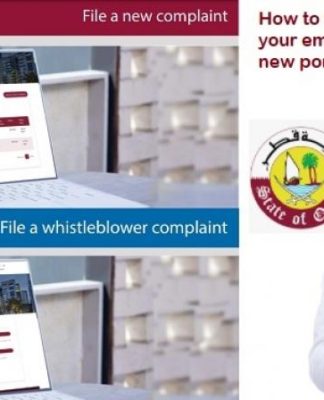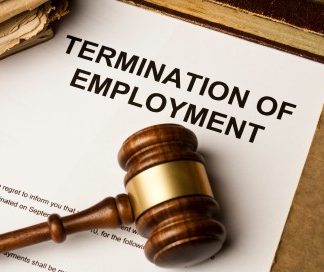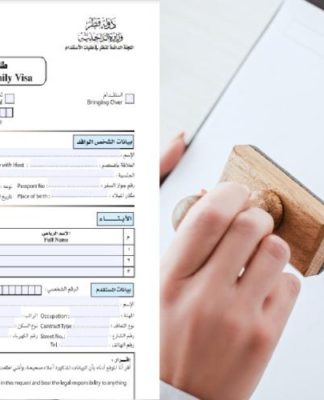Explainer
Strikes: Who is taking industrial action in 2023 and when?
The UK faces a fresh wave of strikes this year after unions launched a series of actions in December, including the largest NHS strike in history and the biggest walkout of ambulance staff in three decades.
Thursday 16 March 2023 21:16, UK
Why you can trust Sky News
Hundreds of thousands of workers have been striking, with more set to walk out over pay and conditions.
The biggest day of industrial action since the current wave of strikes began last year took place as Chancellor Jeremy Hunt revealed his spring budget on 15 March.
Teachers, junior doctors, regional BBC journalists, university lecturers, civil servants and London Underground drivers all walked out.
Before that, February saw the UK’s biggest day of industrial action in more than a decade as teachers, university staff, train drivers, civil servants, bus drivers and security guards all went on strike.
More workers over the coming months have agreed on industrial action as the government insists it cannot give them inflation-matching pay rises.
Some sectors like the NHS have called off strikes as they put offers to their members.
Sky News looks at which industries are set to strike, when they will take place and which sectors are in talks.
NHS
As part of the biggest day of NHS industrial action ever, ambulance crews and call handlers joined nurses across England in a coordinated walkout on 6 February.
Further national and regional strikes took place in February and March but after talks with the government, NHS unions – apart from junior doctors with the BMA – paused any further action after the majority said they would put a new offer to their members.
Junior doctors
Junior doctors who are members of the British Medical Association walked out for 72 hours from 13-15 March.
More than 98% of junior doctors who took part in a ballot earlier in 2023 voted to strike, with the BMA recording a record turnout of 77.5%.
Talks between the BMA and Health Secretary Steve Barclay at the start of March did not improve matters.
The union said the secretary of state “refused to come forth with any improved offer”.
The government said on 16 March it has offered junior doctors the same terms as other NHS unions, who are putting the offer to their members, but their request for a “pay rise of 35% is not affordable”.
BMA leaders have called on the health secretary to meet them on 17 March to discuss pay and said they will be disappointed “if you do not attend with your team and a mandate this time”.
Ambulance staff
Paused: 20 March – National strikes by Unite members
The regions that could still be affected are:
• West Midlands
• North East
• East Midlands
• North West
Ambulance workers at Unison and GMB called off their March strike dates in England in order to enter talks with the government.
Following the talks, GMB, Unison and Unite are putting a government offer to their members involving a one-off payment of 2% of their salary plus an additional COVID recovery bonus of 4% for the 2022/23 financial year and a 5% pay increase for 2023/24.
Unite, which represents fewer ambulance workers, said while it will put the offer to members, it will not recommend they accept it, unlike GMB and Unison.
After the proposed March strike dates were called off, Rachel Harrison, GMB national secretary, said: “GMB ambulance workers announced a tightening of the derogations for cover on strike days.
“Less than 24 hours later we received a letter from the Secretary of State for Health, Steve Barclay, inviting us and other unions to pay talks.
“This is a huge shift from the government, who for months have refused to consider negotiations on pay.”
About 25,000 paramedics, emergency care assistants, ambulance technicians, call handlers and other 999 crew members from the Unison, GMB and Unite unions walked out across England and Wales in December.
Members were striking over pay, patient safety and staffing levels, with unions saying staff shortages are crippling services every day, putting patients at risk due to the government’s failure to invest in growing demand.
GMB and Unite members in Wales suspended their strike on 6 February after receiving a new pay offer from the Welsh government.
Members of the Royal College of Nursing (RCN) on the picket line outside the Queen Elizabeth Hospital, Birmingham
Image:
Members of the Royal College of Nursing (RCN) on the picket line outside the Queen Elizabeth Hospital, Birmingham
Nurses
Nurses went on strike on the 6 and 7 of February, which followed their first-ever strikes in December and then January, with the Royal College of Nursing warning action will continue until the government listens to their demands.
The RCN had announced that its members would stage a continuous 48-hour strike from 6am on 1 March, with no services exempt.
And it would for the first time involve nursing staff working in emergency departments, intensive care units, cancer care and other services that previously did not take part.
However, a joint statement from the RCN and the Department of Health and Social Care revealed they would be pausing the strikes while fresh talks went ahead.
Unison also paused strike action due for 8 March to enter talks with the government.
On 16 March, following talks with the government both the RCN and Unison said it would put a new offer to its members and will recommend they accept it.
The offer involves a one-off payment of 2% of their salary for the 2022/23 financial year plus a COVID recovery bonus of 4%, and a 5% pay increase for 2023/24.
Mr Barclay said a newly qualified nurse will get more than £1,800 this year on top of a pay rise of more than £1,300 next year.
Members of the RCN had been calling for a pay rise of 5% above inflation – 19.2% – as they claim they have had a real terms pay cut of 20% since 2010.
They also want better working conditions as nursing vacancies are at a record high, saying this means staff are stretched and regularly working beyond their shifts without extra pay.
RCN leader Pat Cullen had said she is willing to meet the government “half-way”, but Health Secretary Steve Barclay has said a 10% pay rise is still unaffordable.
In Wales, the union has cancelled the planned strikes after receiving a new pay offer from the Welsh government.
Steve Barclay MP0:44
Play Video – 10% pay rise for nurses ‘not affordable’
A 10% pay rise for NHS nurses is ‘not affordable’, says the health secretary.
Physiotherapists
Physiotherapists from the Chartered Society of Physiotherapy (CSP) went on strike on 26 January and 9 February.
More than 4,000 physiotherapists employed by 30 NHS trusts across England are thought to have taken part.
The CSP had been due to walk out on 22 March – but suspended action in order to enter talks with the government with other health unions.
It will put a new pay offer from the government to its members – a one-off payment of 2% of their salary for the 2022/23 financial year plus a COVID recovery bonus of 4%, and a 5% pay increase for 2023/24.
Rail
16, 18 and 30 March and 1 April – The Rail Maritime and Transport Union has announced that its members working for 14 train operating companies will walk out on these dates
London Underground drivers, represented by Aslef, and other tube workers, represented by the RMT, went on strike on 15 March – the day chancellor Jeremy Hunt delivered his budget – in a dispute over pensions, job losses and working arrangements.
RMT members at 14 train companies took part in the first in a wave of four 24-hour on 16 March, with the other three set for 18 and 30 March and 1 April.
Steve Montgomery, chair of the Rail Delivery Group, speaking for the industry, said the strikes would inconvenience customers and “cost our people even more money at a time they can least afford it”.
Train operators have offered staff a pay rise worth 9% over two years, with a guarantee against compulsory redundancies until the end of 2024.
Civil servants
6-28 March – 1,600 driving test examiners will hold 10 days of industrial action
About 133,000 civil servants from the Public and Commercial Services (PCS) union went on strike on budget day, on 15 March, in an escalation of a dispute over pay, pensions and job security.
Driving test examiners also announced 10 strike days taking place between 6 and 28 March in a dispute over pay, pensions and jobs. More than 1,600 members of the PCS employed by the Driver and Vehicle Standards Agency will take rolling days of industrial action.
It follows another mass strike on 1 February that saw hundreds of thousands of members in 123 government departments walk out across England, Scotland and Wales.
Previous action has involved Border Force staff and National Highways workers – but the PCS is balloting another 30,000 members working for 10 more employers, including HM Revenue and Customs (HMRC) and the Welsh government, with the results expected at the end of the month.
The PCS union is calling for a 10% pay rise, protections to pensions and protections from job cuts.
The government has said the demands – which it says would cost £2.4bn – are unaffordable.
Passport Office
3 April – 5 May – Passport Office staff in Durham, Glasgow, Liverpool, Newport, Peterborough and Southport
7 April – 5 May – Passport Office staff in Belfast
Members of the PCS union will walk out for five weeks across England, Scotland and Wales while those in Northern Ireland will strike for four weeks.
The union said the action is a “significant escalation” in the long-running dispute as it warned the strike will have a “significant impact” on the delivery of passports as summer approaches.
Members are asking for a 10% pay rise as well as job security, changes to their pensions and protected redundancy terms.
On 1 February, Passport Office staff joined about 100,000 civil servants represented by the PCS as part of industrial action affecting 124 government departments.
About 133,000 civil servants also walked out on 15 March in the largest day of strikes since this current wave started last year.
Teachers
Joint general secretary of the NEU Dr May Bousted0:48
Play Video – Teachers ‘have nothing left’
Teachers ‘have nothing left’
The National Education Union (NEU) took part in three days of consecutive strikes between 28 February and 2 March, and 15-16 March across England and Wales.
Thousands of teachers across England and Wales also went on strike on 1 February after the largest education union reached the threshold required to take industrial action.
The NEU organised a ballot of 300,000 members, calling for a “fully funded, above-inflation pay rise”.
On 17 March, the NEU, National Association of Headteachers (NAHT), NASUWT The Teachers’ Union, and Association of School and College Leaders (ASCL) announced they would be entering “intensive talks” in a joint statement with the government.
As part of the negotiations, the unions agreed to not announce any more strikes for a fortnight.
On days of action, some schools have been closed entirely while others were not impacted.
A planned strike by teachers belonging to the National Education Union due to be held in Wales on 14 February was postponed after a new pay offer was received but the NEU rejected the offer so is striking in March instead.
Scottish teachers
Rolling strikes were set to take place for much of March and into April across schools in Scotland.
But the Educational Institute of Scotland (EIS) called this off on 3 March, when they recommended members accept a revised pay offer from the Scottish government.
Members of the Educational Institute of Scotland (EIS) join teachers at a rally outside the Scottish Parliament in Edinburgh in a protest over pay
Image:
Members of the Educational Institute of Scotland (EIS) join teachers at a rally outside the Scottish Parliament in Edinburgh in a protest over pay
University staff
16-17, 20-22 March – university staff with the University College Union (UCU)
More than 70,000 staff at 150 universities will strike on several days throughout March after already walking out in February.
The UCU is in dispute with those universities over the pay, pensions and working conditions.
It wants a higher pay offer than the 4% to 5% put on the table as well as a reversal of the cuts to pensions that will see the average member lose 35% of their guaranteed future retirement income, according to the union.
The union is also reballoting its members to take further action this academic year.
Airport workers
31 March – 9 April – Heathrow Airport security staff
Travellers heading throught the UK’s busiest airport face “severe delays” after the more than 1,400 secuirty staff empoyed by Unite announced a 10 day walk out.
Sharon Graham, the union’s general secretary, said her members are “fundamental to [the airport’s] success” and they deserve a fair pay increase.
A spokesperson for Heathrow said airport has “contingency plans” which will “keep the airport open and operational despite unnecessary threats of strike action by Unite”.
Environment Agency
Environment Agency workers who were members of Unison and Prospect went on strike between the 7 and 9 of February.
The unions say workers have had a 9% fall in pay compared with inflation since 2016 and 20% since 2010 which is causing many staff to leave.
They have rejected a 2% pay rise as “simply not enough”.
Firefighters
Members of the Fire Brigades Union (FBU) overwhelmingly voted for action in a ballot that would have resulted in the UK’s first nationwide fire service strike over pay since 2003.
But on 6 March, the union announced it was halting the strike, which did not yet have a date, after 96% of members who took part in a ballot voted in favour of a new pay offer negotiated with employers the month before.
They have voted to accept a 7% pay rise backdated to July 2022 and another 5% increase from July this year.
The union said they have had more than a decade of real-terms pay cuts and the new offer was a “significant shift” from a previous offer of just 2% – but said the backdated pay would still be a real-terms pay cut.
Royal Mail
A two-day strike by postal workers planned for 16 and 17 February was called off following a legal challenge by Royal Mail.
The Communication Workers Union (CWU) blamed laws that are “heavily weighted against working people” for scrapping the planned walkouts.
A new wave of strikes is looming after the union secured a fresh mandate for industrial action.
The CWU announced that 95.9% of its members had voted in favour of renewed strikes on a 77% turnout, although it has so far stopped short of announcing new strike dates.
The CWU has been locked in the dispute with Royal Mail since autumn with members staging 18 days of strikes in the second half of 2022 over pay, jobs and conditions.
Members have been fighting proposed modernisation plans they say would “spell the end” of Royal Mail and want an improved pay deal on the “best and final” 9% offer they rejected last year.
The dispute has become increasingly bitter and personal, with company and union leaders at each others’ throats in a public battle for sympathy.
Related Topics
Nurses’ Strike
Rail Strikes
Strikes






























